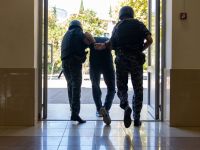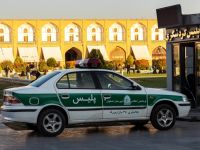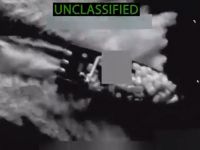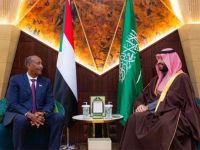The Gulf Satellite Aided Search and Rescue Seminar starts next Sunday and proposes a Gulf Aviation SAR Strategy

The UAE General Civil Aviation Authority (GCAA) announced at a press conference held today, March 2, that it completed its preparations for hosting the Gulf Satellite Aided Search and Rescue Seminar which will be held at the Abu Dhabi Armed Forces Club between 6-8 March 2011 with the participation of regional and international speakers, experts and high level delegations.
The agenda of the Seminar, organized by the General Civil Aviation Authority (GCAA) in coordination with the Telecommunications Regulatory Authority (TRA) and the UAE Air Force, includes 15 items aimed at the development of international SAR service in the Gulf States in line with the requirements of the International Civil Aviation Organization (ICAO).
“The SAR Seminar is one of the important events on the regional civil aviation agenda.” Mr. Omar Ghaleb, Deputy Director General, GCAA said. “In its second year, it will develop an overall view of issues related to search and rescue in the Gulf and set frameworks and plans for more development in this sector in order to provide more safety and security.”
“The Telecommunications Regulatory Authority and the UAE Air Force provided their support to make this seminar a success and help achieve its goals of enhancing cooperation between the Gulf States to secure fast response and immediate availability of expertise and equipment in the event of any aviation accidents or incidents in relation to Air Transport in general.” He added.
H.E. Mohamed Nasser Al Ghanim, TRA Director General, commented on the event saying: “A joint committee between TRA, GCAA and Armed Forces was established to guarantee coordination of the work and to facilitate effective hosting for the two coming events.”
“The seminar will offer opportunities to the staff and the participants to attend training workshops on the new beacon registration software and gain experience in this field.” added Al Ghanim.
At the opening session, the UAE Air Force Commander, the TRA Director General, the GCAA Director General, the ICAO Deputy Regional Director and Cospas-Sarsat Deputy Head will deliver welcoming addresses, shedding light on the goals of the Seminar and the developments at its previous sessions as well as the UAE’s objectives in relation to the Gulf Satellite Aided Search and Rescue Seminar.
On the first day, after the opening session, several topics will be discussed. First, the Gulf States (Bahrain, Iraq, Kuwait, Oman, Qatar, Saudi Arabia, Yemen, and United Arab Emirates) will present reports on SAR status with particular reference to Cospas-Sarsat capabilities and SAR organizational arrangements.
The first day agenda also includes an overview of the civil aviation SAR system by Mr. Brian Day, GCAA ATS Inspector (SAR) and an overview of the COSPAS-SARSAT system by Ms. C. Bertoia, Deputy Head, Cospas-Sarsat Secretariat.
The second day sessions start with a review by Ms. Bertoia of distress beacons. In the second session, Mr. Philippe Hazane, Cospas-Sarsat Expert, France, will focus on the space segment. In the third session, Mr. Danis Unverdi, Cospas-Sarsat Expert, Turkey, will give an overview of ground stations.
Ms. Emilia Melian, Chief, Spanish Mission Control Centre, will have a look at Mission Control Centres, explaining their functions, operations and service areas.
Mr. David Edwards, United States Coast Guard, will give a presentation on planning SAR resources on national/sub-regional SAR plans. Finally, Capt Mohamed Al Mansoori, UAE RCC Abu Dhabi, will have a look at the Rescue Coordination Centre and SPOCs.
On the third day of the Seminar, Mr. Ahmed Al Jallaf, UAE GCAA, will present a paper on the benefits for the Gulf region in more cooperative aviation SAR provision. Then, Mr. Mr. Brian Day, GCAA ATS Inspector (SAR) will review the ICAO SAR organization policy. This will be followed by presentations of innovative technology for improved SAR cooperation.
The third day's agenda also includes a joint panel discussion on proposals for a Gulf Aviation SAR strategy. The panel will be chaired by Mr. Ahmed Al Jallaf and will have as its members Lt. Col. Ahmed Nasser Al Ameri, Dep Commander, SRCC, UAE Air Force, Mr. Chris Dalton, Chief Air Traffic Management, ICAO, and Mr. Brian Day, ATS Inspector (SAR), GCAA. The summary and findings of the three-day Seminar will be presented by Mr. Ismaeil Al Balooshi, GCAA Director of Aviation Safety.
Background Information
General Civil Aviation Authority
The General Civil Aviation Authority was created in 1996 by Federal Cabinet Decree (Law 4) to regulate Civil Aviation and provide designated aviation services with observance to the safety and security to strengthen the aviation industry within the UAE and its upper space. Since 1996 the Authority has made considerable progress and embarked on bold new initiatives to provide a better service to its civil aviation clients and stakeholders. Since 1996 many new projects and innovations have been initiated with generally excellent result, such as modernization of the air traffic control center program, Radar equipments and establishing of new facilities to serve the growth of the civil aviation within the UAE.
Telecommunication Regulatory Authority
The Telecommunications Regulatory Authority (TRA) of the United Arab Emirates (UAE) was established according to the UAE Federal Law by Decree No. 3 of 2003 – Telecom Law, on regulating the telecommunications sector in the UAE. Since its establishment, the TRA has exceeded expectations by achieving its projected goals in record time.
The role of TRA focuses on two fields: regulating the telecommunications sector, and enabling government entities in the field of smart transformation.






